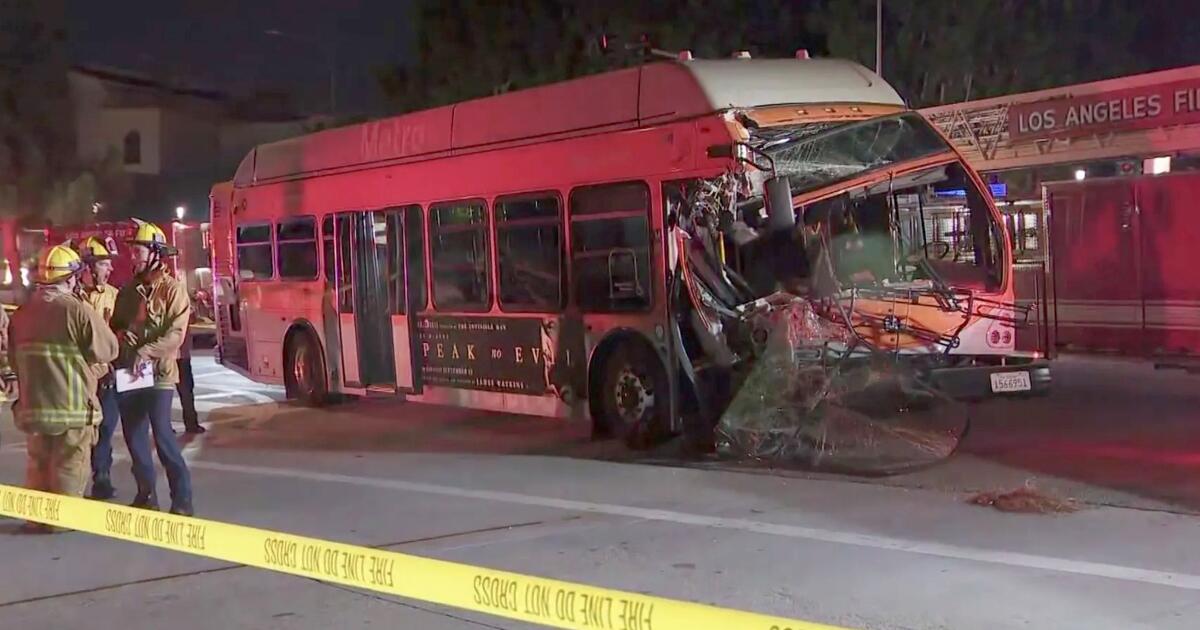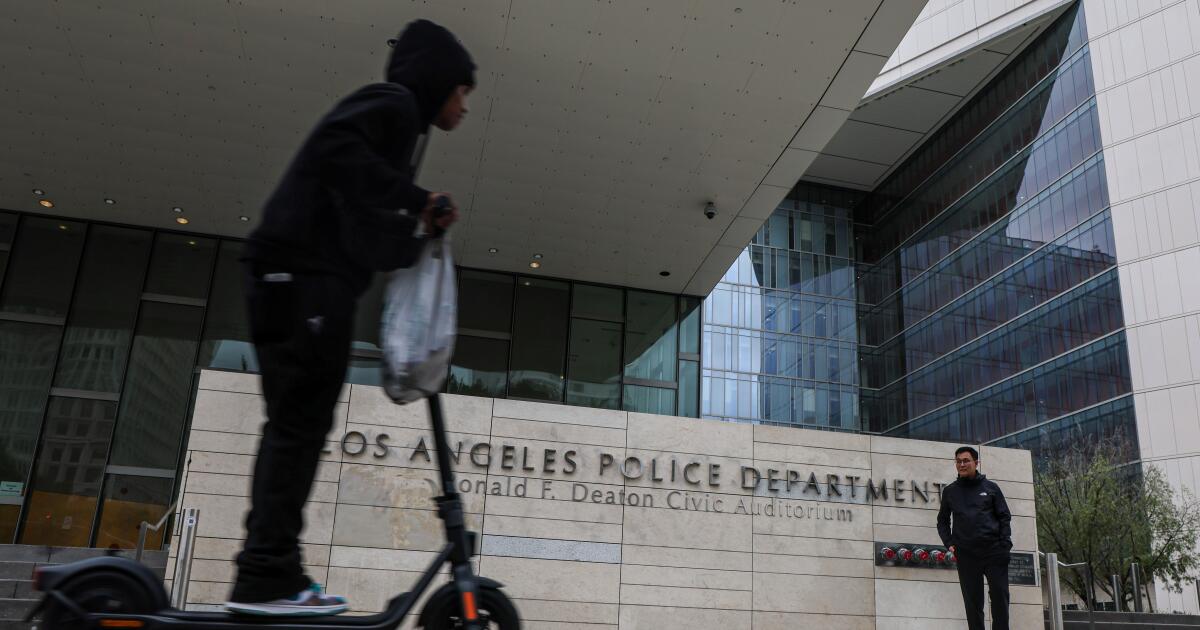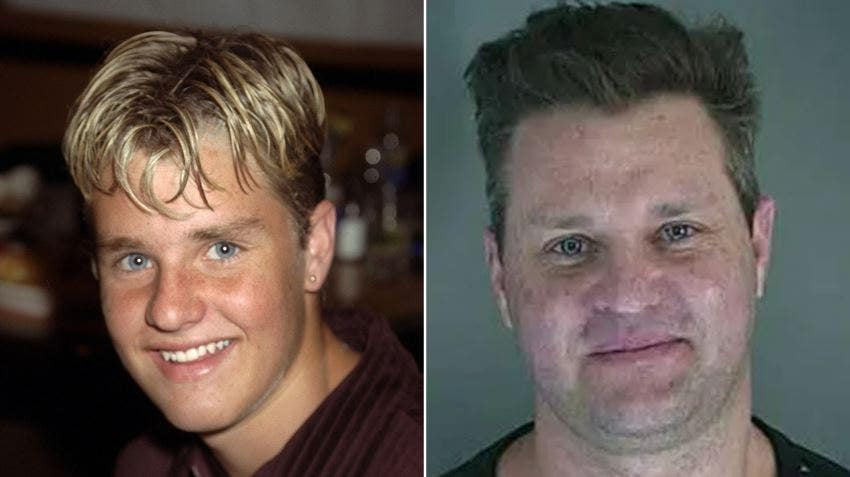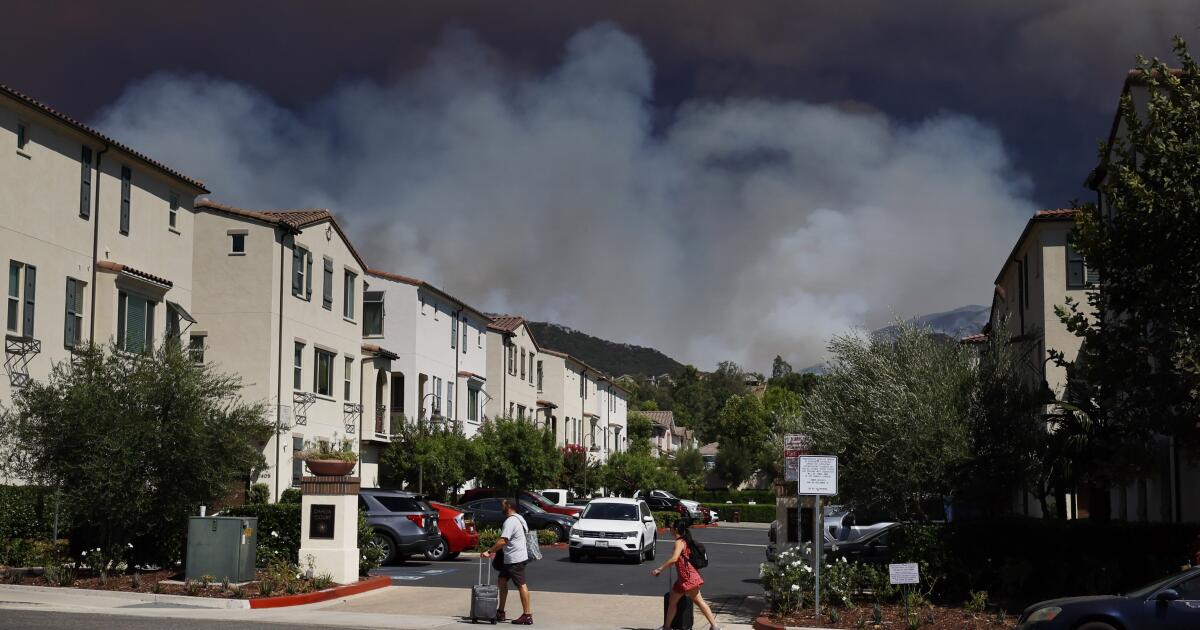On stage at the Republican National Convention on Tuesday, supporters of former President Trump described migrants crossing the U.S.-Mexico border as dangerous gang members, sex traffickers and terrorists who put American families “at great risk.”
“Joe Biden’s rise has also led to a rise in violent crime committed by illegal immigrants,” a narrator says in a video shown at the convention. “Horrific crimes, murders, gang attacks on our police, sex crimes against minors, and the brutal murder of a nursing student on her college campus.”
Days earlier, Trump was nearly assassinated by an American citizen. Thomas Matthew Crooks was registered to vote in Pennsylvania, and only citizens can register.
In the aftermath of the assassination attempt, Trump’s campaign message remained unflinching, casting immigrants as the source of violence in the United States. But the shooting that left Trump with a wounded ear was allegedly carried out by someone who fits the typical profile of targeted violence perpetrators: a young, white man described by some former classmates as a bullied loner.
“Targeted violence is often carried out by angry people who don’t have well-thought-out narratives and are more impulsive and idiosyncratic,” said Brian Levin, founder of the Center for the Study of Hate and Extremism at CSU San Bernardino.
He said most targeted acts of violence are committed by young, white men between the ages of 19 and 20. Studies show that immigrants commit fewer crimes than U.S.-born citizens.
Using data collected between 2012 and 2018 by the Texas Department of Public Safety, researchers at the University of Wisconsin found that undocumented immigrants had substantially lower crime rates than native-born citizens across a range of serious offenses, including violent crimes, drug crimes, and property crimes.
A similar study by Alex Nowrasteh of the Libertarian Cato Institute found that undocumented immigrants had a homicide rate 14 percent lower than that of native-born citizens. Texas is the only state that keeps data on the immigration status of people arrested for specific crimes.
Ran Abramitzky, a Stanford University professor who helped lead a nationally representative study comparing incarceration rates among immigrants and U.S.-born citizens from 1870 to 2020, recently told The Times that “as a group, immigrants have had lower incarceration rates than the U.S.-born for 150 years.”
But political fearmongering doesn't match the facts, Levin said, and that's why the Republican Party will continue to blame immigrants for violent crime.
“The anecdotal image, the terrifying image of someone who is different is what is going to sell that fear,” he said. “Political theater involves the construction, or at least the amplification or exaggeration of grievances, and that is problematic.”
While the man who shot Trump does not fit the profile of the person he blames for the crimes, the shooting at his Pennsylvania rally on Saturday could make it easier for Republicans to convince voters that law and order is necessary. That could end up confusing violent extremism by American citizens with violent crimes committed by immigrants.
“I think there will certainly be an attempt to link the attempted assassination of the former president to the image that we live in a dark, scary, American carnage world,” said Democratic strategist Maria Cardona. “He will try to paint a picture of everything with one brush.”
Democrats can use that spin to their advantage, he said, by pointing to the truth: that arrests at the border are down, crime is down and immigrants are less likely to commit crimes than U.S.-born citizens.
Republican strategist Matt Terrill said crime and security were already top concerns for many voters, who view security holistically, taking into account not just immigration but also concerns like protest violence and domestic terrorism.
“What happened on Saturday only further accentuates the problems of crime and security,” he said. “What they are looking for now is someone who can lead on that issue.”
The Trump campaign and the Republican National Convention did not respond to a request for comment.
The top priority listed in the Republican Party platform, which will be voted on this week, is “SEAL THE BORDER AND STOP THE MIGRATION INVASION.”
“We will end the invasion at our southern border, restore law and order, protect American sovereignty, and deliver a safe and prosperous future for all Americans,” the platform states.
Trump himself has Repeated statements by Adolf Hitler saying that immigrants entering illegally are “poisoning the lifeblood of our country,” and plans to vastly expand detention capacity and deport millions of people a year.
At Tuesday's convention, speaker after speaker focused on migration as a threat to public safety.
“Look at the border,” said Trump’s former rival Nikki Haley. “It’s the biggest threat facing Americans.”
“We cannot survive the dramatic increases in violence, crime and drugs that Democrats’ policies have brought to our communities,” said House Speaker Mike Johnson. “And we cannot allow the many millions of illegal immigrants they have allowed to cross our borders to harm our citizens, drain our resources or disrupt our elections.”
“Open borders are often portrayed as compassionate and virtuous,” said Michael Morin, brother of Rachel Morin, a 37-year-old mother of five who was killed while jogging in Maryland last August. The man charged with her murder had entered the United States illegally.
“But there is nothing compassionate about allowing violent criminals to come into our country and steal children from their mothers,” said Michael Morin.
Levin, the Cal State San Bernardino extremism expert, said Trump's near-assassination and the resulting messaging make people more susceptible to conspiracies and stereotypes.
“Behind this is a narrative of fear, and brutally combined with it are a series of alleged aggressors who threaten American tradition — in other words, these people come to our country and speak other languages and practice other religions,” he said.
Sonja Díaz, who was executive director of the UCLA Institute for Latina Politics and Policy and now runs the Latina Futures 2050 Lab, believes the fallout from Trump’s assassination attempt will reinvigorate the idea of law and order, potentially reinforcing exclusionary law enforcement policies that negatively affect immigrants.
“That rhetoric has been ‘us versus them,’ and that ‘them’ has really been clearly situated at the U.S.-Mexico border,” he said.












